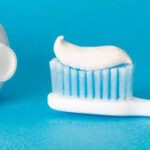Polycystic ovary syndrome (PCOS) is one of the most common hormonal and metabolic disorders in women of reproductive age. It affects their weight, and insulin sensitivity, and increases the risk of metabolic syndrome, heart disease, and type 2 diabetes. A recent study, published in the Iranian Biomedical Journal by Maryam A. and colleagues, has brought new insights into how time-restricted eating (TRE) can help women with PCOS.
What Is Time-Restricted Eating (TRE)?
TRE is a form of intermittent fasting where eating is restricted to a specific time window during the day. The study compared two types of TRE:
- Early TRE (e-TRE): Eating between 8:00 AM and 6:00 PM.
- Mid-Day TRE (m-TRE): Eating between 11:00 AM and 9:00 PM.
Why Is This Study Important?
Many women with PCOS struggle with weight loss and insulin resistance. While TRE is already known to help with weight management and regulating blood sugar, it was unclear whether eating earlier in the day (e-TRE) or later (m-TRE) was more effective. This study aimed to find out.
How the Study Was Conducted
The clinical trial included 50 overweight or obese women aged 18–40 years with PCOS, diagnosed using the modified Rotterdam criteria. The participants were randomly divided into two groups:
- e-TRE Group (25 women): Eating from 8:00 AM to 6:00 PM.
- m-TRE Group (25 women): Eating from 11:00 AM to 9:00 PM.
The study lasted 6 weeks, during which the researchers measured various health markers such as:
- Weight and waist circumference (WC)
- Body mass index (BMI)
- Fasting blood sugar (FBS) and fasting insulin
- Insulin resistance (HOMA-IR)
- Lipid profile: total cholesterol (TC), triglycerides (TG), high-density lipoprotein (HDL), and low-density lipoprotein (LDL)
What Were the Results?
1. Better Weight Management
Both e-TRE and m-TRE groups saw significant improvements in weight, BMI, and waist circumference after 6 weeks. However, e-TRE led to greater reductions, making it the better option for weight management.
2. Improved Insulin Sensitivity
Both groups experienced a significant decrease in fasting blood sugar and insulin resistance (HOMA-IR). However, e-TRE significantly reduced fasting insulin levels, while the change in the m-TRE group was not as noticeable.
3. Lipid Profile
- e-TRE significantly improved total cholesterol (TC) and LDL levels.
- The m-TRE group showed no significant changes in cholesterol levels.
- Neither group had significant changes in triglycerides (TG) or HDL levels.
4. Intergroup Comparison
When comparing the two groups directly, e-TRE showed superior results for reducing weight, BMI, fasting blood sugar, cholesterol levels, fasting insulin, and insulin resistance.
What Does This Mean for Women with PCOS?
This study proves that early time-restricted eating (e-TRE) is more effective than mid-day TRE (m-TRE) for:
- Losing weight
- Reducing insulin resistance
- Improving cholesterol levels
Since e-TRE involves eating earlier in the day, it aligns better with the body’s natural biological clock, helping to improve metabolism. This makes e-TRE a simple, non-pharmacological strategy for managing PCOS-related issues.
Limitations and Future Research
While e-TRE is promising, its impact on other metabolic parameters like triglycerides and HDL needs further research. Larger studies are needed to confirm these findings and explore long-term benefits.
Key Takeaways
For women with PCOS, early time-restricted eating (e-TRE) offers a powerful and natural way to manage weight and improve insulin sensitivity. It’s simple to follow: restrict your meals to the time window between 8:00 AM and 6:00 PM. This approach not only helps with weight loss but also enhances overall metabolic health.
If you’re looking for an effective, non-invasive way to manage PCOS, e-TRE might be the perfect solution to start your journey toward better health!
To register for our next masterclass please click here https://linktr.ee/docpreneur




